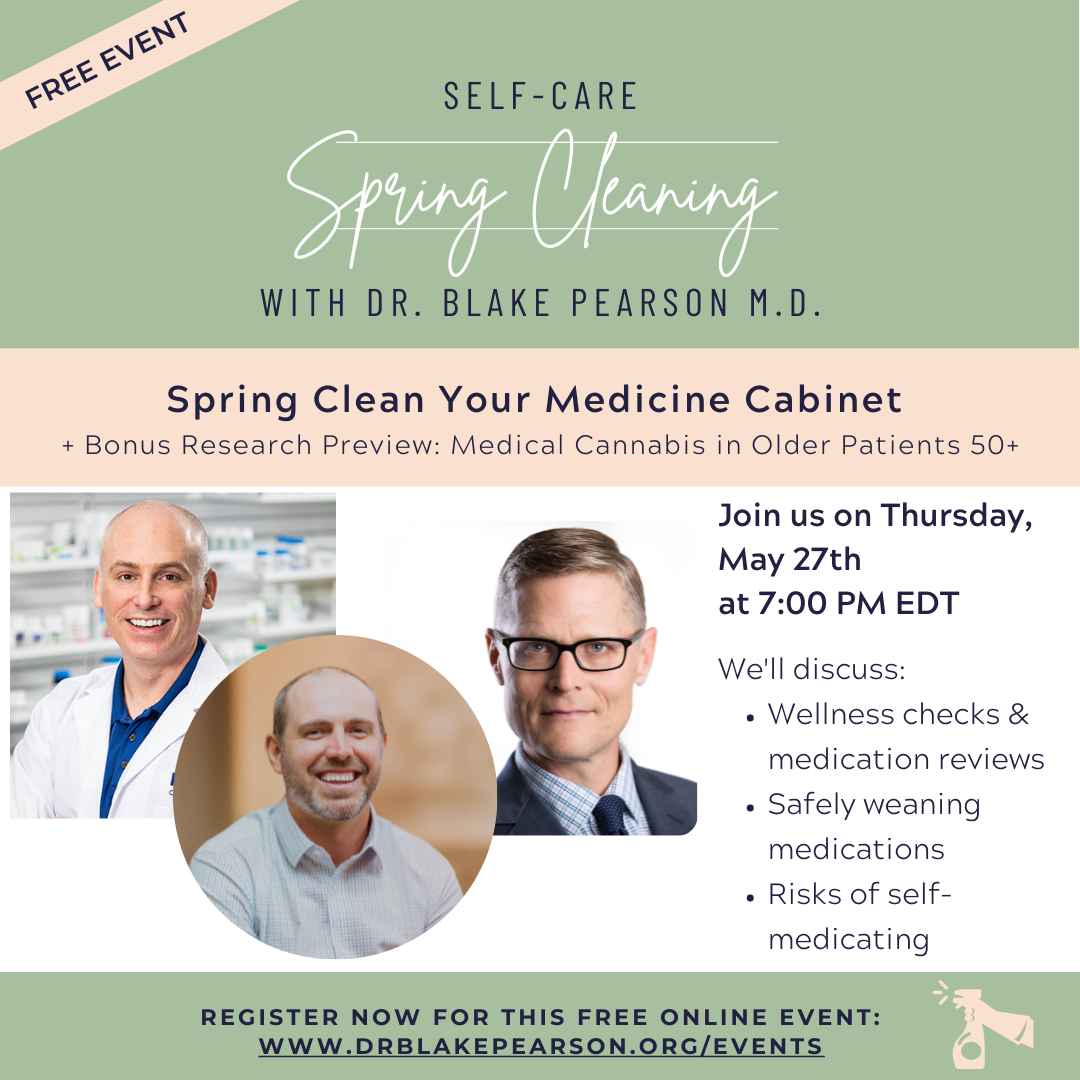When was the last time you reviewed your medications and supplements with your doctor? Why should you care?
In this pandemic year, many people have missed their annual wellness checks. Recent data also shows a potential rise in self-medication - including over-the-counter meds, supplements, alcohol & recreational drugs - all of which could lead to serious side-effects.
In episode two, Dr. Pearson will be joined by certified geriatric pharmacist and Health Depot (tag) CEO, Andrew Donald and Tilray’s Philippe Lucas PhD, for an interactive discussion on everything you need to know to medicate mindfully.



